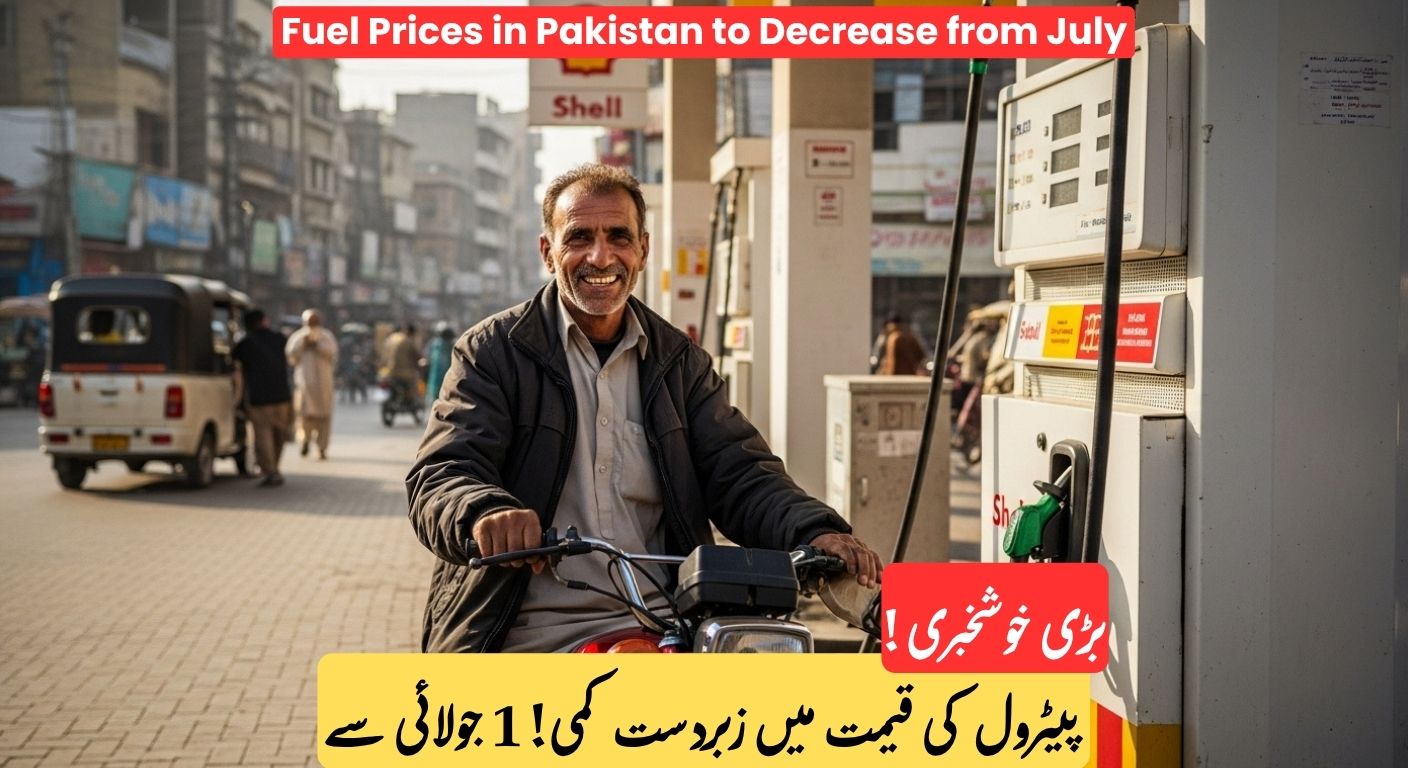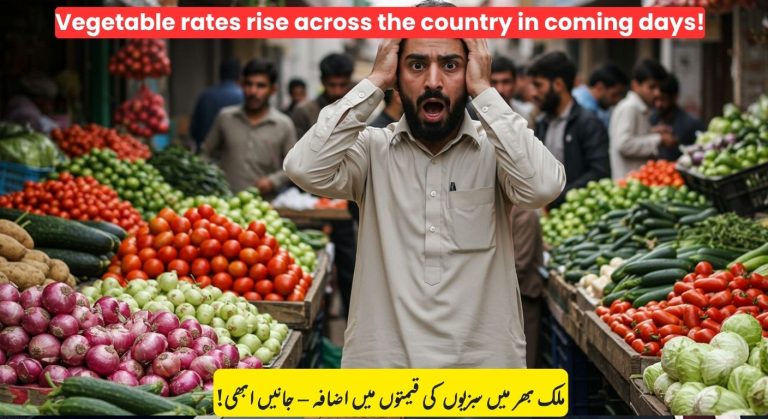Fuel Prices in Pakistan to Drop Significantly from July 1 as Israel-Iran Ceasefire Brings Global Relief

Fuel prices in Pakistan are set to drop by Rs. 9–10 per liter starting July 1, 2025, driven by a global oil price slump following a ceasefire between Israel and Iran. The de-escalation has eased fears of disruptions in the Strait of Hormuz, a critical oil shipping route, leading to a significant decline in Brent crude prices to $67–69 per barrel, down over 15% from a five-month high of $81.
Fuel Price Reduction Details
- Expected Decrease:
- Petrol: Rs. 9–10 per liter.
- Diesel: Rs. 9–10 per liter.
- Effective Date: July 1, 2025, pending announcement by the Oil and Gas Regulatory Authority (OGRA) and the Ministry of Finance.
- Current Prices (June 2025):
- Petrol: Rs. 259.10 per liter.
- High-Speed Diesel: Rs. 264.49 per liter.
- Projected Prices (Post-Reduction):
- Petrol: ~Rs. 249.10–250.10 per liter.
- Diesel: ~Rs. 254.49–255.49 per liter.
Reason for the Price Drop
- Israel-Iran Ceasefire: On June 24, 2025, U.S. President Donald Trump announced a ceasefire between Israel and Iran, ending a 12-day conflict that began with Israel’s strikes on Iranian nuclear and military sites on June 13. The ceasefire reduced fears of Iran blocking the Strait of Hormuz, through which 20% of global oil (18–19 million barrels per day) flows, causing Brent crude to fall from $81 to $67.14 per barrel (6.1% drop) and U.S. WTI crude to $64.37 per barrel (6% drop) by June 25.
- Global Market Impact: The ceasefire alleviated concerns about supply disruptions from key oil producers (Saudi Arabia, Iraq, UAE, Qatar, Iran), stabilizing global markets. Stock markets rallied, with the U.S. S&P 500 up 1% and Germany’s DAX up 1.6%, reflecting reduced geopolitical risk.
- Currency Factor: The Pakistani rupee strengthened to ~Rs. 283.7 against the U.S. dollar, up 0.9% on June 24, further supporting the fuel price cut due to lower import costs.
Why the Ceasefire Matters
- Strait of Hormuz: This 33-km-wide channel handles 20% of global oil and 20% of liquefied natural gas (LNG). Iran’s threats to block it during the conflict drove oil prices to $81 per barrel, raising fears of inflation and higher transport costs in Pakistan.
- Market Stabilization: The ceasefire, though shaky with reported violations by both sides, has restored confidence in uninterrupted oil flows. Iran’s attack on a U.S. base in Qatar on June 23 did not disrupt tanker traffic, and Qatar Energy confirmed no impact on LNG shipments.
- OPEC+ Capacity: Spare production capacity from OPEC+ (e.g., Saudi Arabia, Russia) of ~3.3 million barrels per day can offset potential Iranian disruptions (Iran exports 2 million barrels per day), further easing price pressures.
Implications for Pakistan
- Consumer Relief: A Rs. 9–10 per liter drop will reduce commuting costs, with a 50-liter petrol tank saving ~Rs. 450–500 per fill. This could ease inflation (12.6% in June 2025), benefiting households reliant on the Honda CD 70 (55–60 km/L) or Suzuki Alto (18–22 km/L).
- Transport and Goods: Lower diesel prices will reduce transport costs, potentially lowering prices of essentials like food and consumer goods, which spiked during the conflict due to higher fuel costs.
- Economic Impact: The rupee’s rally (Rs. 283.7 vs. USD) and lower oil import costs could stabilize Pakistan’s trade balance, though sustained ceasefire adherence is critical.
Context of Earlier Concerns
- Pre-Ceasefire Fears: On June 23, posts on X warned of a potential Rs. 20–30 per liter fuel price hike from July 1 due to global oil price spikes (Brent at $76.9, up 12.4%). These fears were driven by Israel-Iran tensions and Iran’s attack on a U.S. base in Qatar, raising concerns about Strait of Hormuz blockades.
- Shift Post-Ceasefire: The ceasefire announcement on June 24 reversed these expectations, with global oil prices dropping 6–7%, leading to the projected Rs. 9–10 cut.
Disclaimer: The Rs. 9–10 per liter reduction is based on projections as of June 26, 2025, and awaits OGRA confirmation. Ceasefire stability and global oil prices may affect final prices .








